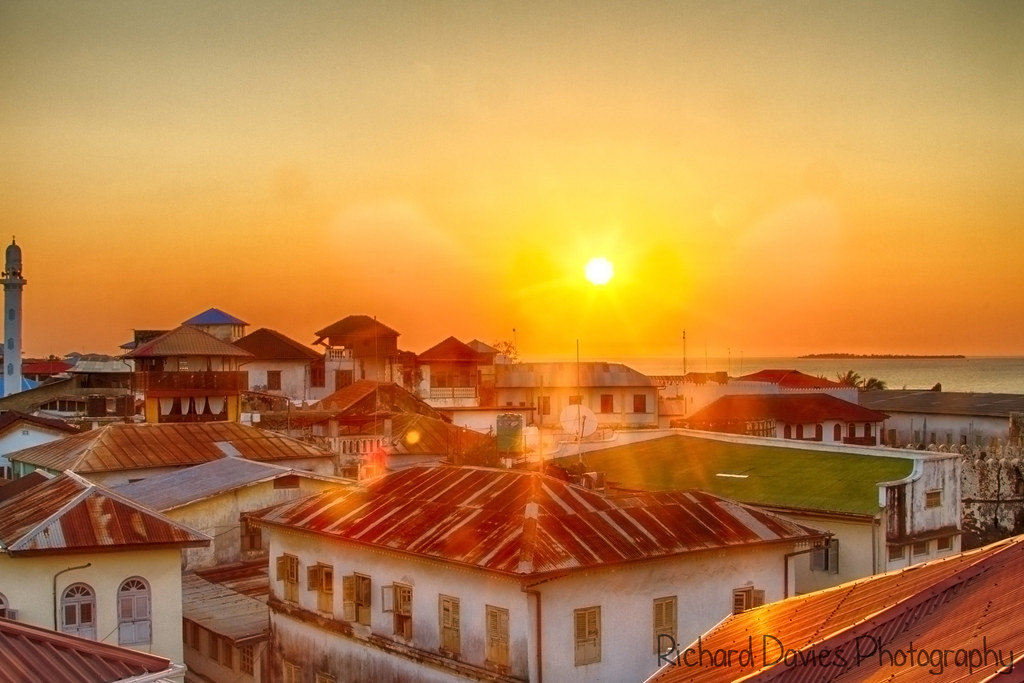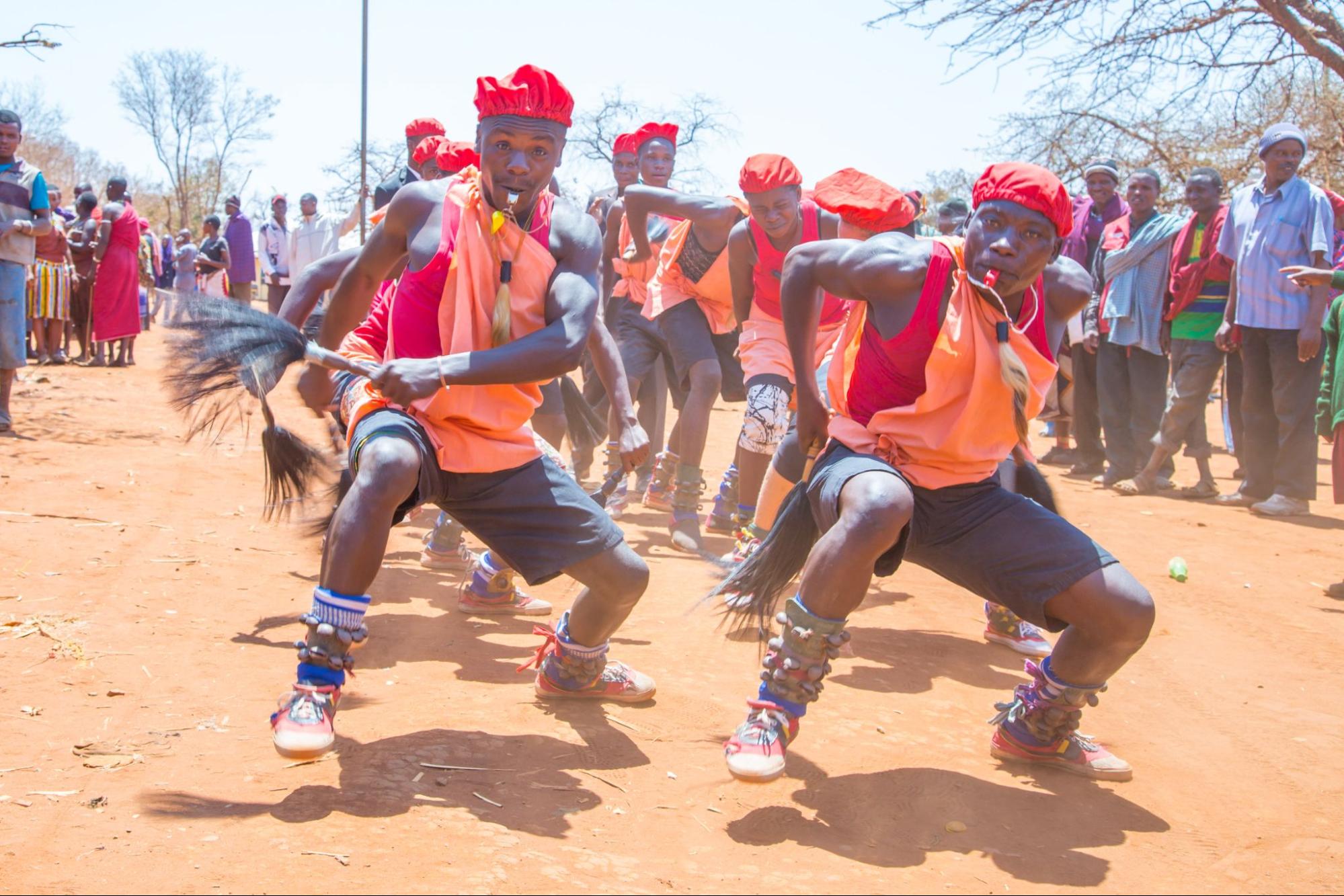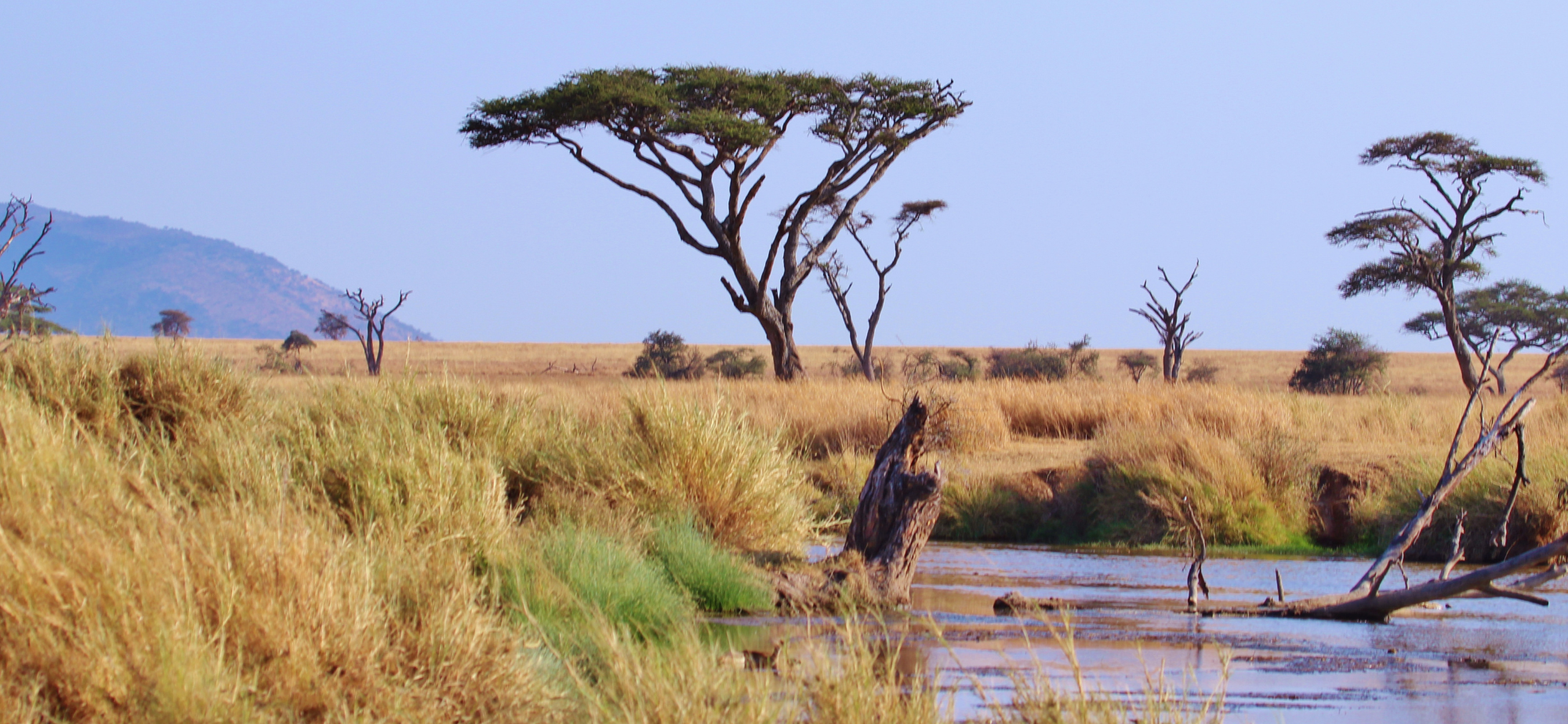Tanzania, a gem in East Africa, is a country that offers unmatched experiences with its breathtaking landscapes, vibrant wildlife, and rich cultural heritage. If you’re wondering whether February is a good time to visit this incredible destination, this blog will provide a comprehensive guide.
From weather insights to cultural events, top things to do, and packing tips, this article will help you plan your dream trip to Tanzania in February.
- Is February a good time to visit Tanzania?
- Weather Guide in Tanzania in February
- Cultural Experiences in Tanzania in February
- Events & Festivals in February in Tanzania
- Top 5 Things To Do in Tanzania
- Famous Places to Eat in Tanzania
- What to Pack for Tanzania in February
- Where to Stay in Tanzania
- Average Cost of a Trip to Tanzania
- Tips for Making the Most of Your Tanzania Adventure
- Why Choose OneVasco?
- FAQs
Is February a good time to visit Tanzania?
Tanzania in February falls in the shoulder season at the end of the green season. It is a great time to visit Tanzania, especially for wildlife enthusiasts and cultural explorers.
-
Lush Landscapes
February is part of the shoulder season in Tanzania, following the green season, and offers stunningly vibrant landscapes.
The end of the rainy season leaves the country’s parks and forests lush and alive with rich greenery. This time is perfect for photography, as the landscapes are at their most scenic, with rolling hills, dense forests, and abundant plant life, providing a perfect backdrop for nature lovers and adventure seekers alike.
-
Wildlife Activity
For those interested in wildlife, February is a particularly special month in Tanzania, as it marks the start of the wildebeest calving season in the Serengeti.
Thousands of wildebeest give birth during this period, creating an exciting spectacle. This surge of new life attracts predators like lions, cheetahs, and hyenas, offering a rare opportunity to witness dramatic predator-prey interactions in their natural environment, making it one of the best times for safari enthusiasts.
-
Fewer Crowds
Unlike the peak travel seasons in Tanzania, February sees fewer tourists, giving you the chance to explore the country’s top destinations in relative peace.
The quieter atmosphere makes it easier to enjoy popular attractions such as Serengeti National Park or Ngorongoro Crater without the usual tourist crowds. This means more space, less noise, and a more intimate experience with Tanzania’s natural beauty and wildlife.
-
Pleasant Weather
February enjoys warm temperatures and comfortable weather, making it an ideal time for outdoor activities.
Whether you’re going on a safari, trekking up Mount Kilimanjaro, or relaxing on the beaches of Zanzibar, the mild climate ensures a comfortable experience. The pleasant weather provides the perfect balance between warmth and coolness, ensuring a memorable trip that’s both exciting and comfortable for all types of travellers.
Weather Guide in Tanzania in February
February is characterized by warm temperatures and occasional rain showers. Here’s an overview of the weather conditions –
|
Weather Element |
Details |
|---|---|
|
Temperature Range |
18–31°C (65–87°F) |
|
Humidity |
Moderate to high (60-75%) |
|
Chances of Rainfall |
Low to moderate |
|
Average Precipitation |
50-150 mm, depending on the region |
|
No. of Rainy Days |
5-10 days |
|
Time of Rainfall |
Mostly in the afternoons or evenings |
Despite some rain, the weather is generally suitable for safaris and outdoor activities, with cooler evenings adding to the comfort of your trip.
Cultural Experiences in Tanzania in February
Tanzania’s rich cultural heritage is a blend of indigenous traditions and modern influences. In February, you can explore the following:
-
Maasai Villages
Tanzania is home to several indigenous communities, with the Maasai being one of the most renowned.
In February, you can visit Maasai villages to experience their rich traditions firsthand. These semi-nomadic pastoralists are known for their striking attire, which includes colorful shukas (cloaks) and intricate beadwork.

During your visit, you’ll have the chance to learn about their customs, including their unique method of cattle farming and their spiritual beliefs. Don’t miss their iconic jumping dance, which is a key part of Maasai celebrations and showcases the community’s strength and agility.
-
Swahili Coast
The Swahili Coast, including coastal towns like Bagamoyo and Zanzibar, offers a window into Tanzania’s deep cultural and historical connections with the Arab world. February is a great time to explore this region, where you can experience the fusion of African, Arab, and European influences.

Explore the cobbled streets of Zanzibar’s Stone Town, where the blend of Arabic architecture, narrow alleys, and bustling markets tells the story of the island’s past as a key trading hub.
Also, enjoy the region’s distinctive Swahili cuisine, with its mix of spices, coconut, and fresh seafood, and learn about the rich maritime traditions that shaped this coastal culture.
-
Traditional Dances
Tanzania’s diverse tribes each have their own unique ways of expressing cultural stories through dance and music. In February, you can witness captivating traditional dances that celebrate tribal legends, victories, and important events.

These dances are often performed during local festivals, weddings, and other significant community gatherings. It’s a beautiful way to connect with the spirit of Tanzania’s people and gain a deeper understanding of their customs.
Events & Festivals in February in Tanzania
While February may not host major national festivals, there are several localized events and celebrations:
-
Wildebeest Calving Season
February in Tanzania marks one of the most dramatic and awe-inspiring wildlife events of the year—the wildebeest calving season in the Serengeti.
During this period, thousands of wildebeests give birth to their calves, typically in the southern Serengeti plains, creating a spectacle of life and movement. It also attracts predators such as lions, cheetahs, and hyenas, who are drawn to the vulnerable young calves.
This is a prime time for wildlife safaris and photography to witness both the beauty and the raw intensity of nature.

-
Zanzibar Music Scene
Zanzibar, known for its rich cultural heritage, boasts a vibrant music scene that you can explore in February. The island is a melting pot of diverse musical traditions, blending African, Arab, Indian, and European influences.
Zanzibar’s live music scene comes alive in the evenings, with local musicians performing in open-air venues, hotels, and bars.
You can also explore more contemporary music scenes, where you’ll hear a fusion of traditional rhythms and modern styles.

Top 5 Things To Do in Tanzania
Tanzania offers a wealth of unforgettable experiences, from thrilling safaris to breathtaking natural wonders. Whether you’re exploring its iconic national parks, relaxing on pristine beaches, or challenging yourself with a climb up Mount Kilimanjaro, Tanzania promises adventures for every type of traveller. Here are the top 5 things to do in this East African paradise –
-
Safari in Serengeti National Park
Embark on a thrilling safari adventure in Serengeti National Park, known for its endless plains and incredible wildlife sightings. Experience the great wildebeest migration or the calving season, when thousands of wildebeest give birth, attracting predators.
Serengeti offers an excellent chance to spot the Big Five: lions, leopards, elephants, rhinos, and buffalo, making it a must-visit destination for wildlife enthusiasts.
Website to book for your safari: https://www.serengeti.com/

-
Explore Ngorongoro Crater
Venture into the Ngorongoro Crater, a breathtaking caldera formed millions of years ago, home to a thriving ecosystem. As a UNESCO World Heritage Site, this conservation area is rich in biodiversity, with the chance to encounter lions, elephants, rhinos, and buffalo in their natural habitat. The stunning landscapes of the crater floor, surrounded by towering cliffs, make it a truly unforgettable experience.
Website: https://www.ngorongorocratertanzania.org/

-
Visit Zanzibar’s Beaches
Indulge in relaxation and adventure on Zanzibar’s idyllic beaches, renowned for their crystal-clear waters and white sandy shores. Explore the popular beaches of Nungwi and Kendwa, or discover hidden gems along the coastline. With opportunities for snorkeling, swimming, kite surfing, and sunbathing, Zanzibar offers the perfect tropical retreat for both relaxation and water-based activities.

-
Climb Mount Kilimanjaro
For those seeking an adventurous challenge, climbing Mount Kilimanjaro is a once-in-a-lifetime experience. At 5,895 meters, it is Africa’s tallest mountain and offers a variety of trekking routes suited to different skill levels. The dry months of February are ideal for summiting, with stunning views and diverse ecosystems along the way, from rainforests to alpine deserts, making it a true adventure for nature lovers and trekkers alike.
Website to book your climb: https://www.climbing-kilimanjaro.com/

-
Dive in Mafia Island
Mafia Island, one of the best-kept secrets of Tanzania, is a haven for diving enthusiasts. The island is home to pristine coral reefs, abundant marine life, and the opportunity to swim with gentle whale sharks, which migrate through the area. With less crowded dive sites and clear waters, Mafia Island provides a peaceful escape for divers seeking an unspoiled underwater world.
Website: https://mafiaisland.com/

Famous Places to Eat in Tanzania
Savor local flavors at Dar es Salaam’s foodie hotspots like The Waterfront for seafood or Forodhani Gardens in Zanzibar for street food.
-
The Rock Restaurant, Zanzibar
Located on a rock in the Indian Ocean, The Rock Restaurant offers a unique dining experience with stunning views and delectable fresh seafood.
Accessible by boat at high tide and by foot at low tide, this iconic spot provides a picturesque setting where you can indulge in local seafood delicacies while enjoying the breathtaking ocean vistas.

-
Forodhani Night Market, Zanzibar
Forodhani Night Market is a must-visit for food enthusiasts looking to sample Zanzibar’s street food.
This bustling market, located along the waterfront in Stone Town, offers a wide range of local delicacies, including Zanzibar pizza, seafood skewers, and freshly pressed sugarcane juice. The vibrant atmosphere and flavorful bites make it an unforgettable culinary experience.

-
The Green Room, Arusha
A popular café among travelers, The Green Room in Arusha is known for its fresh organic dishes and vibrant ambiance.
This eco-friendly restaurant serves healthy and delicious meals made from locally sourced ingredients, making it a top choice for those looking for wholesome, sustainable dining in a relaxed, welcoming environment.
What to Pack for Tanzania in February
From packing lightweight and breathable clothing for warm days, to not forgetting sunscreen, insect repellent, and more, here’s a checklist of do’s and don’ts on what to pack for your trip to Tanzania.
|
Do’s |
Don’ts |
|---|---|
|
Lightweight clothing in breathable fabrics like cotton or linen. |
Avoid packing heavy winter clothing as it’s unnecessary. |
|
A waterproof jacket or poncho for unexpected rain showers. |
Don’t forget rain protection, especially for safaris. |
|
Comfortable hiking boots for safaris and treks. |
Skip uncomfortable or non-durable footwear. |
|
Sunscreen, sunglasses, and a wide-brimmed hat. |
Don’t rely solely on shaded areas for sun protection. |
|
Insect repellent and anti-malarial medication. |
Avoid traveling without adequate mosquito protection. |
|
Binoculars and a camera for wildlife photography. |
Don’t leave behind essential travel accessories. |
Where to Stay in Tanzania
You can choose to stay in eco-friendly lodges like Serengeti Serena Safari Lodge for a luxurious safari experience or explore budget options like hostels in Moshi for Kilimanjaro trekkers –
-
Luxury Lodges
Singita Grumeti and Serengeti Migration Camp offer unmatched comfort and panoramic wilderness views.

-
Mid-range Hotels
Arusha Coffee Lodge and Zanzibar Serena Hotel provide good value without compromising on quality.

-
Budget Options
Green Camp Serengeti and Kendwa Rocks Beach Hotel offer affordable stays without sacrificing experience.

Average Cost of a Trip to Tanzania
Here’s a cost breakdown for a week-long trip –
|
Category |
Average Cost |
|---|---|
|
Flights |
₹58,000-₹1,25,000 (depending on origin) |
|
Accommodation |
₹4,000-₹80,000 per night |
|
Food |
₹800-₹4,000 per meal |
|
Safaris |
₹16,000-₹80,000 per day |
|
Total Budget |
₹1,65,000-₹4,10,000 for a week-long trip |
Tips for Making the Most of Your Tanzania Adventure
- Book safaris and accommodations in advance to secure the best deals.
- Carry cash in Tanzanian shillings for local markets and small purchases.
- Hire a local guide for cultural tours to gain deeper insights into traditions and history.
- Respect local customs and dress modestly when visiting villages or religious sites.
- Stay hydrated and protect yourself from the sun during outdoor activities.
- Before traveling, make sure you’re familiar with the procedures for visa extensions in Tanzania.
- It’s a good idea to check your visa status online ahead of your trip, especially for Indian travelers.
- Ensure your documents are in order by understanding the visa photo guidelines for Indians applying to visit Tanzania.
Why Choose OneVasco?
OneVasco makes visa applications effortless. Our expert team manages the entire process, allowing you to focus on your journey.
Enjoy stress-free travel with fast visa approvals.
- Expert and Personalized Support
- Efficient and Hassle-Free Process
- Real-Time Tracking and Updates
- Transparent Communication
- Trusted by Millions
FAQs
Is February a good time for a safari in Tanzania?
Yes, February is perfect for safaris, especially to witness the wildebeest calving season.
What is the weather like in Tanzania in February?
Warm and occasionally rainy, with temperatures ranging from 25°C to 30°C.
What are the best places to visit in Tanzania in February?
Serengeti National Park, Zanzibar, Ngorongoro Crater, and Mount Kilimanjaro.
Are there any festivals in Tanzania in February?
While February lacks major national festivals, the wildebeest calving season is a natural event worth experiencing.
How much does a trip to Tanzania cost in February?
On average, a week-long trip costs between ₹1,65,000 and ₹4,10,000, depending on activities and accommodation.





















